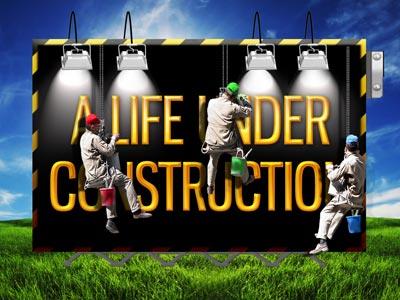-
Change Or Not Series
Contributed by Daniel Austin on Nov 28, 2017 (message contributor)
Summary: In his words “to pick up his pallet” the Lord is telling him and any who want to change something very important; choose to change your way of life and begin a new “walk.”
Change Or Not
Change Part Four
020809PM
Reading: John 5:1-7
Text: John 5:1-7
Introduction
Today we finish a short series centered on change. You may have noticed quite a bit of talk about change in the media these days. Change is taking place all around us, in every aspect of our lives it seems there is change happening. Politics, economy, climate, we are told that everything is changing and that we must change accordingly (according to whom is the question!)
In our first lesson we saw how God calls everyone to repentance; that is, to change the direction of our lives.
In the second lesson we examined a teaching Jesus gave to His disciples requiring in them a change of attitude concerning the Kingdom of Heaven.
In our lesson this morning we looked at the question of into what we should be changing and how to effect our transformation as we strive to change and become like Christ.
In this final lesson we will examine why change does or does not happen.
Why Change Does Not Happen
Sir Isaac Newton's first law of motion says that an object in motion will stay in motion and an object at rest will stay at rest unless acted on by an outside force. I think we all recognize within ourselves the need for change. Yet we also recognized that the change we need is often only prevented by ourselves.
Read John 5:1-7
According to John, Jesus has traveled from Galilee to Jerusalem in order to celebrate a feast or festival. We don’t know for sure which one, but it may have been the feast of Pentecost, a feast commemorating the giving of the law on Mount Sinai. When he was in Jerusalem, Jesus went to the Pool of Bethesda, also known as Bethsaida, where “a great multitude of sick people” gathered. Fittingly the name Bethesda means “house of mercy.” The attraction of the pool given in verse four may be omitted, because it was thought by some to be a later addition. At any rate, it was said that an angel of the Lord would at certain times come down to the pool and disturb the surface of the water and the first person to enter the pool there-after was cured of any illness. Whether or not this had ever in fact happened, that was what these people believed. In this multitude of people who had gathered was man to whom Jesus was drawn.
It is interesting to consider that out of all these people Jesus chose to heal one man. One thing we do know from this scripture is that it was not because the man sought Jesus’ help. In fact, he did not even know who Jesus was. Jesus encountered him and from this encounter I want you to note with me some things we may learn concerning change from this passage.
I. We Must Choose To Change (v6)
John 5:6 (NASB) When Jesus saw him lying there, and knew that he had already been a long time in that condition, He said* to him, “Do you wish to get well?”
This seems a strange question to ask a man who has been sick and an invalid for nearly forty years. "Do you want to be made well?" But Jesus never asked a foolish question in his life, therefore it is obviously it was important for this man to answer at least to himself the question, “Do I really want to be changed.” He was asking a very serious question because it is entirely possible that he does not “really” want to be changed.
In the past thirty-eight years this man has been a beggar who lived by the pity of others; if he is healed he would lose all of this, all of his livelihood.
This man by being healed would be venturing out into the unknown, he would lose all his present securities, and he will have to be responsible for himself. To be healed meant to enter in a completely new life, one with wonderful possibilities, but also with certain amount of risk.
The fact is that some people will go to extraordinary lengths to avoid unwelcome changes in their lives.
I see in this man many people in our own day. Their lives are sick. They are paralyzed in heart and mind. Their lives are dysfunctional, but they will choose not to consider that God might have something for them. They have learned to live like this. They don’t know, and don’t want to know, there is something more to life. They have become satisfied with subsisting. They are not seeking God or calling out to him. It is as though they are sick and are not aware of it, or if they are aware of it, it seems normal to them.

 Sermon Central
Sermon Central



